Writing at Old Sarum Primary
Intent – Vision
We are ambitious for all our children and strive to ensure that we provide them all with the skills needed for them to become successful writers; that they enjoy writing and view themselves as effective, competent writers whilst appreciating our rich and varied literary heritage. We aim that all children should possess a strong command of the spoken and written language.
Our writing curriculum is built around a wide range of diverse, high quality texts. In each year group children engage with poems, picture books, novels and visual texts as inspiration and models for their own writing. High quality texts are adapted to suit the needs of learners and act as models to inspire independent writing. We encourage progressive writing journeys based around a Talk for Writing Journey.
Implementation – How we teach
Planning is built around the Talk4Writing (T4W) methodology. We choose our texts and engaging hooks from an exploration of the backgrounds of our students, our beliefs about high quality education and our values. Children are taught and learn and a ‘model text’ through oral repetition and/or analysis and evaluation.
Children are guided through 3 stages to scaffold independent writing following relevant grammar and skills progression for their stage.
Stage 1: imitation/text analysis
Stage 2: shared write
Stage 3: independent application
Impact – what this means for children
Children will:
- Have a good understanding of the purpose of writing and can write effectively for a range of purposes and audiences.
- Can plan, draft, edit and improve their writing
- Have a wide vocabulary that they use within their writing.
- Leave primary school being able to effectively apply spelling rules and patterns they have been taught and are ready for the next stage of their education.
- Have an understanding of key grammatical concepts and rules to apply to independent writing.
We constantly monitor impact through use of formative and summative assessment and pupil voice. Children complete a ‘cold write’ at the beginning of a new unit: this is used by teachers to inform their unit planning and identify toolkit features for coverage.
Children complete a ‘hot write’ at the end of each unit so they can, as independently as possible, apply newly taught skills.
Weekly spelling is taught and assessed which complements daily grammar teaching. On a termly basis, children complete NFER assessments in both spelling and grammar and adaptations to planning and curriculum are made as needed.
